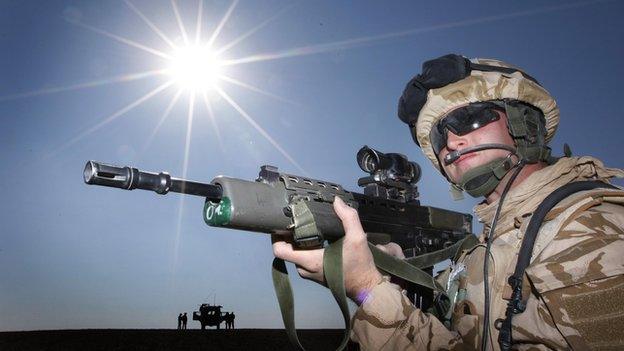British troops hold vigil for Camp Bastion memorial wall
- Published
Ministry of Defence footage shows the Camp Bastion vigil
Members of the British armed forces have held a vigil to mark the departure of Camp Bastion's memorial wall.
The memorial - which bears the names of all 453 UK personnel who have died in Afghanistan - is being transported to the National Memorial Arboretum.
Brig Rob Thomson, the most senior UK military officer in Helmand province, said it was "rightful" the memorial was being "brought home".
British combat troops are due to leave Afghanistan by the end of 2014.
After this year, the only UK presence in Afghanistan will be the British-run military academy in Kabul.
At the height of the war more than 10,000 soldiers controlled 137 bases.
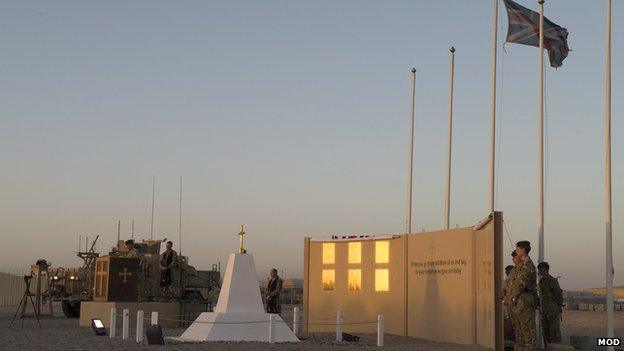
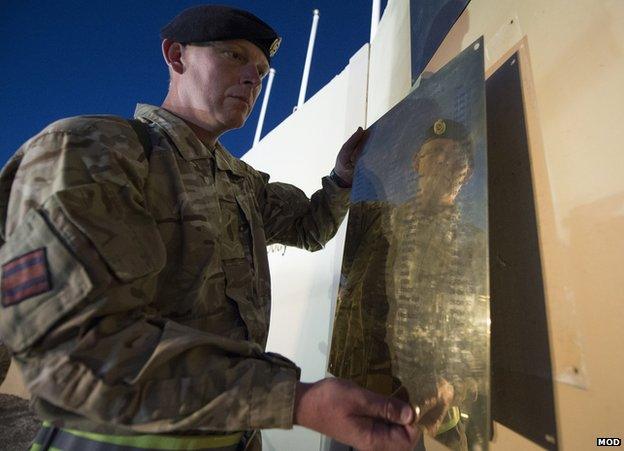

Analysis
By Jonathan Beale, Defence correspondent, BBC News

The Bastion memorial wall has always been the focus of remembrance in Helmand.
The name of every soldier killed since 2006 is engraved on brass plates fixed onto a simple concrete wall place in a large empty square.
It was a rare place of solitude in an otherwise bustling military headquarters.
Each time there was a death it became a place for individual and collective remembrance.
Flags above the wall were lowered, friends and comrades gathered round as the last post was sounded.
Each year there was also a poignant service on Armistice Sunday. The return of the Bastion memorial wall to the UK is a clear sign that Britain's combat mission in Afghanistan is coming to a close.
British troops often built their own makeshift memorials to fallen comrades in smaller patrol bases dotted around Helmand.
Those bases and memorials have already gone. The Bastion memorial will be rebuilt at the National Arboretum in Staffordshire.

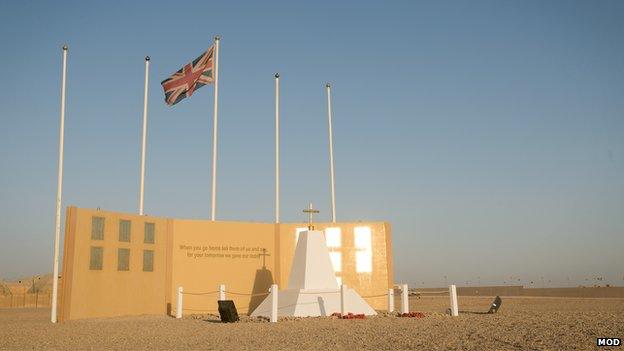
Speaking at the ceremony last weekend, Brig Thomson, deputy commander of regional command (southwest), said: "We all have very particular, personal and often painful memories of the loss that has been felt across all three of our services.
"The memorial wall has become a bastion of our collective memory of those who we have lost during this campaign.
"Its rightful and timely transfer from this land to ours will ensure that the memories of a foreign field are brought home in the right way and will endure for future generations."
- Published17 March 2014
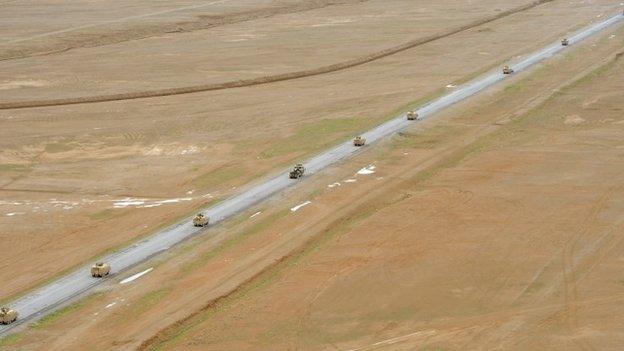
- Published15 October 2015
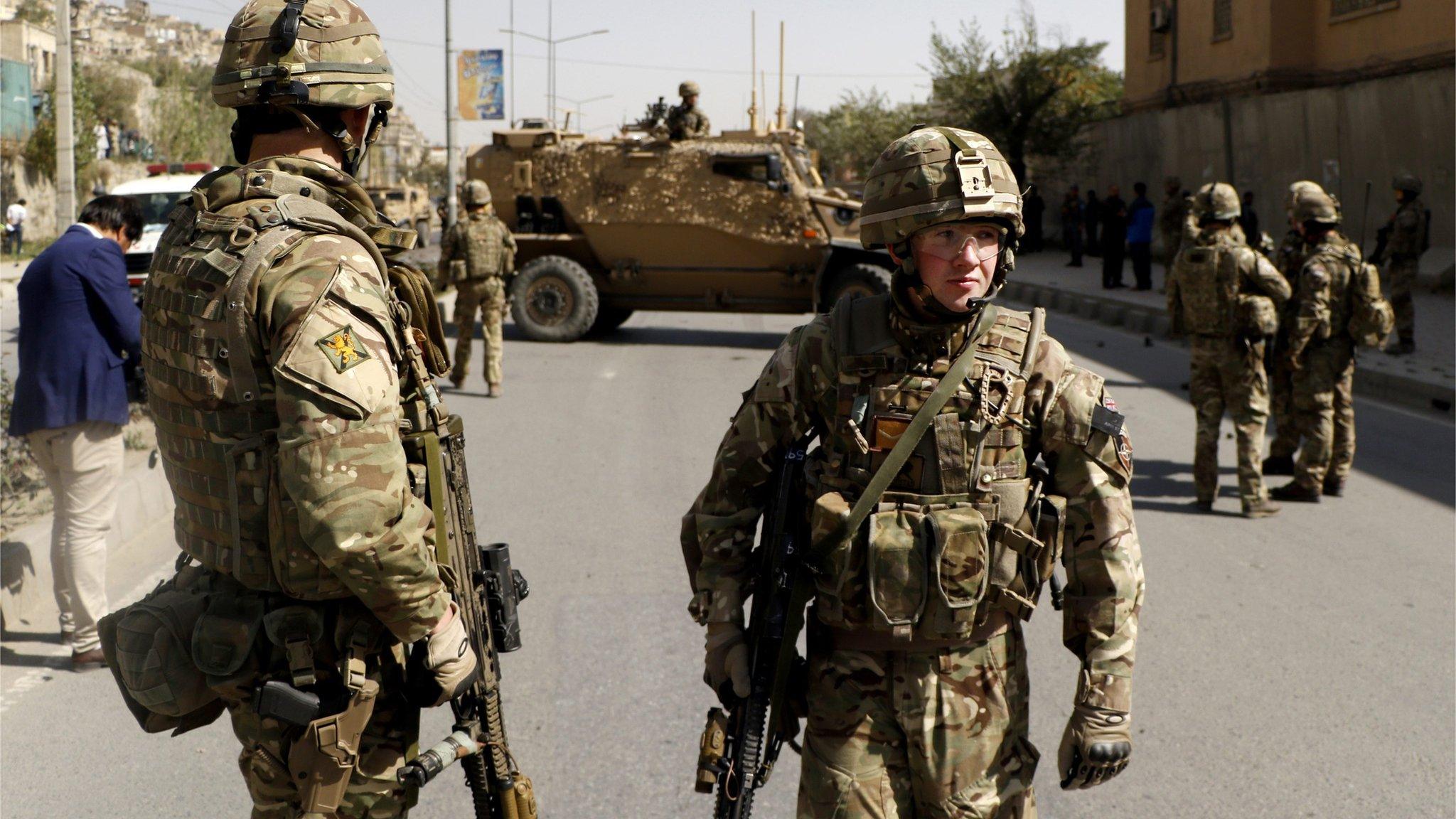
- Published17 December 2013
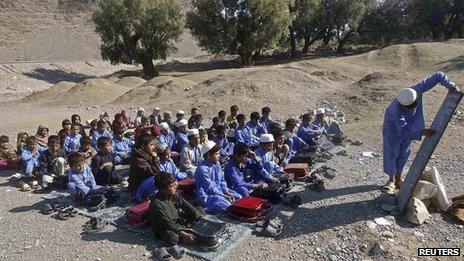
- Published24 September 2012
